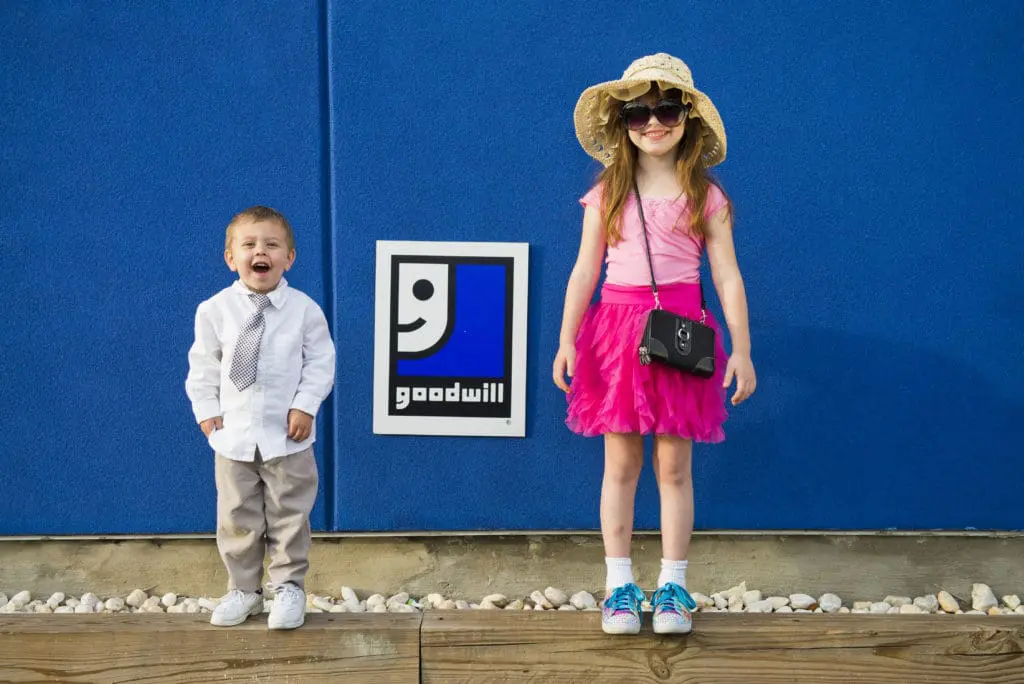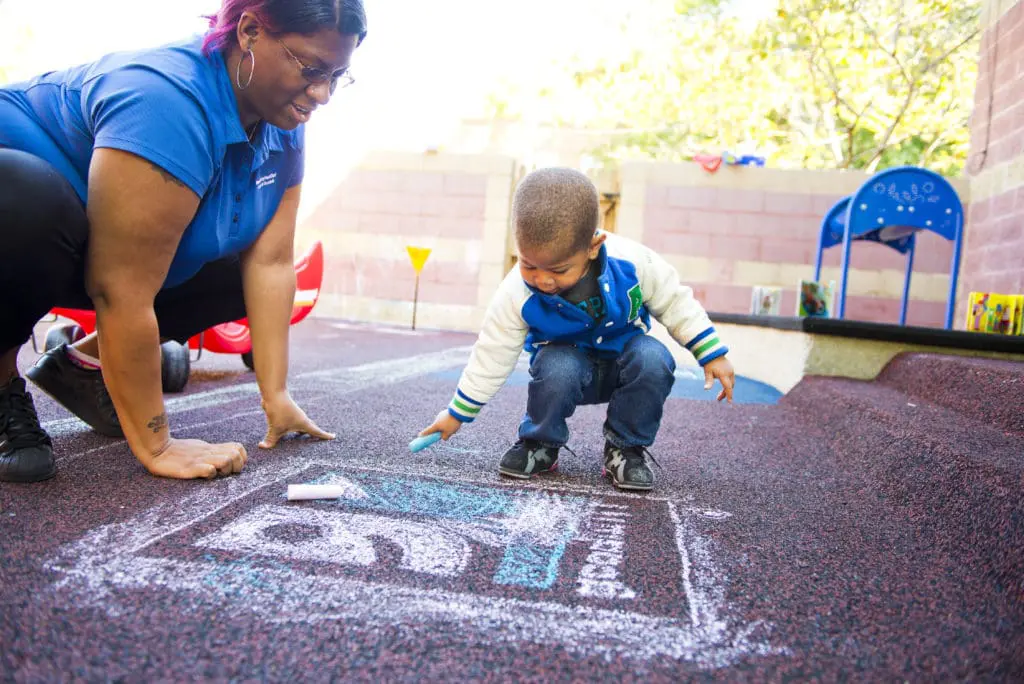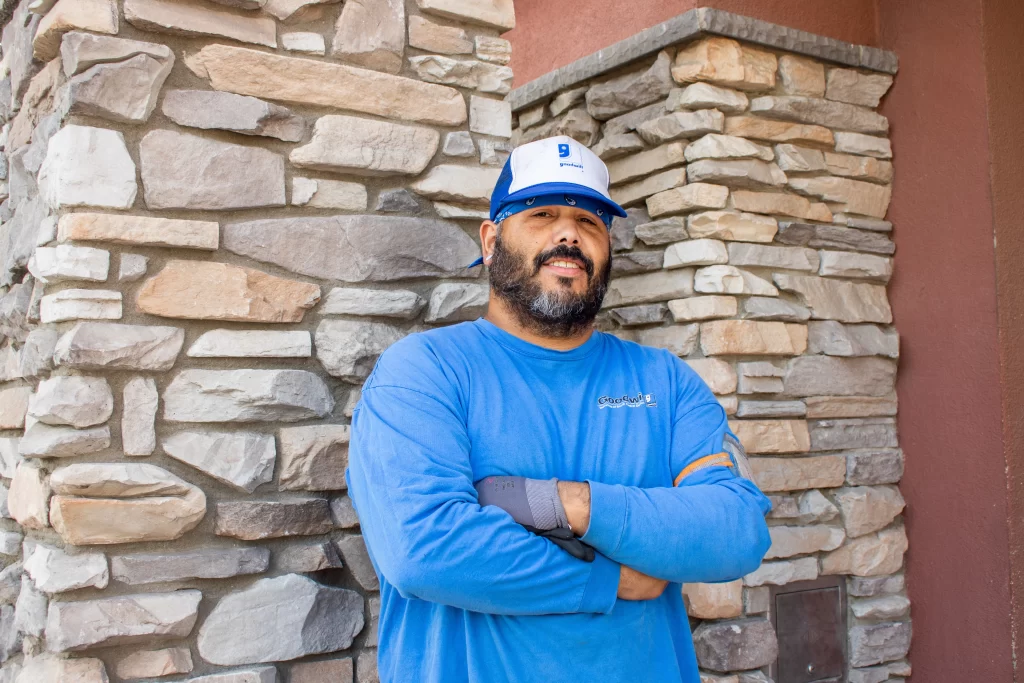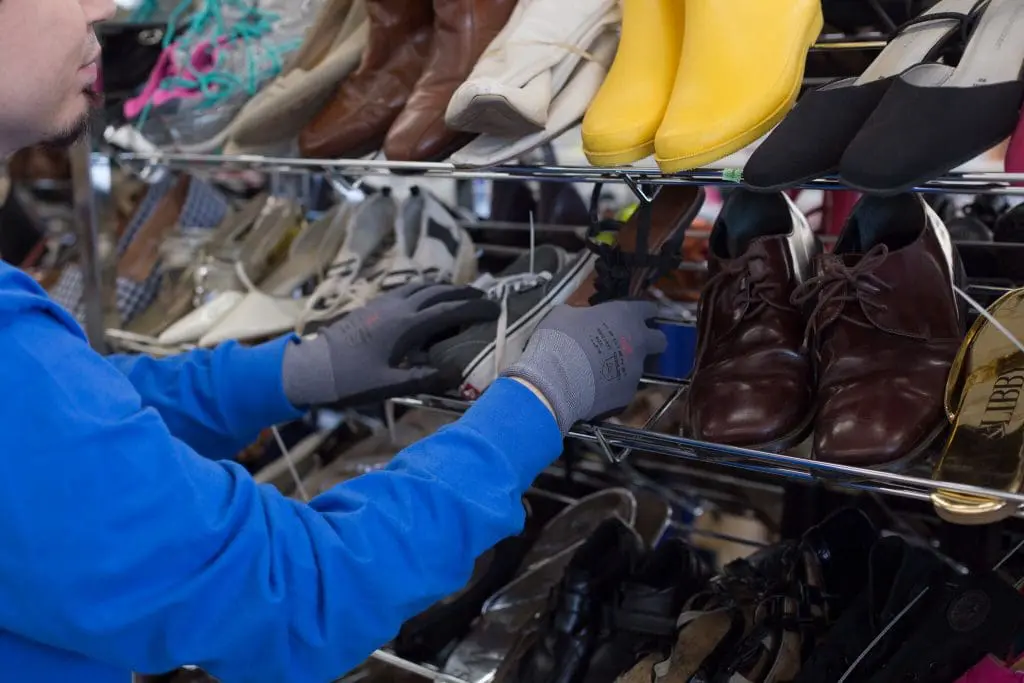Goodwill Industries of South Central California provides work opportunities and skills development to people with barriers to employment.
Yes. Goodwill is recognized as a 501(c)(3) non-profit organization by the Internal Revenue Service. We are one of the area's leading nonprofit providers of education, training, and career services for people with disadvantages, such as welfare dependency, homelessness, and lack of education or work experience, as well as those with physical, mental and emotional disabilities.
Goodwill's administrative offices are located at 3511 Union Ave in Bakersfield. Our area of service includes Kern, Kings, and southern Tulare counties.
With less than 16 cents of every dollar spent on administrative costs, Goodwill sees to it that more than 84 cents on the dollar goes toward the employment and training of people with disabilities and special needs.
Goodwill's programs and services are funded primarily through the proceeds generated by the sale of donated goods in the retail stores and by the sale of recyclables and salvaged goods that did not sell in the retail stores. Goodwill receives limited funding through fees for training services and public support from individual financial contributions.
Unfortunately, Goodwill does not offer home pick up service at this time. However, we have 11 conveniently located donation centers open seven days a week where you can drop off your donation
Our goal is to try to generate money to fund Goodwill programs from every item that is donated. In most cases, we sell donated items through our retail stores. As for items that can't be sold in our stores, we have found other creative uses for them. For instance, items that are too damaged are sold to salvage brokers or through our clearance centers. Donating to Goodwill supports our programs and we work hard to keep usable items out of the landfill.
Goodwill serves those with barriers to employment. This includes individuals with disabilities, people with limited work history, recipients of government support programs and others who are trying to enter the workforce for the first time or get a better job. Goodwill trains people for a variety of career opportunities.
Goodwill Industries is one of the area's largest nonprofit providers of employment and training services for people with disabilities and other disadvantaging conditions such as welfare dependency, illiteracy, and homelessness. Goodwill believes that work creates the economic energy that builds strong families and strong communities. Work helps build self-confidence, friendship and independence. Everyone deserves a chance to have those things in life. Goodwill provides that chance.
Goodwill is an organization with a 107-year track record of placing hard to place individuals in full time employment and an emphasis on long-term connection to clients that is unusual in the field. Because of the unique nature of the Goodwill model, there are other associated benefits that are not yielded by conventional programs. These include: community development and redevelopment in the form of new facilities (including occupied store fronts); new construction jobs and land purchases or leases; recycling donated items away from overburdened landfills and into the productive labor market; new and sustainable payroll within Goodwill for persons with disabilities and other special needs; and new taxes created by newly employed individuals.
Goodwill Industries International, Inc. and the Council of California Goodwill Industries
CARF: Commission on Accreditation of Rehabilitation Facilities
Better Business Bureau, Greater Bakersfield Chamber of Commerce, Kern County Hispanic Chamber of Commerce, Taft Chamber of Commerce, Ridgecrest Chamber of Commerce, Tulare Chamber of Commerce, Porterville Chamber of Commerce, Hanford Chamber of Commerce



